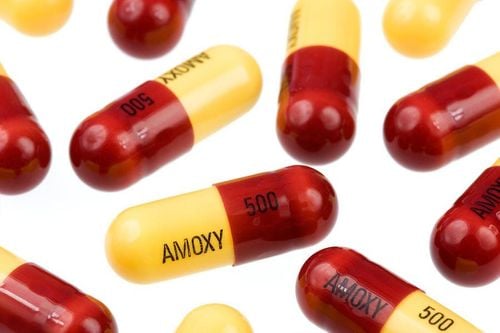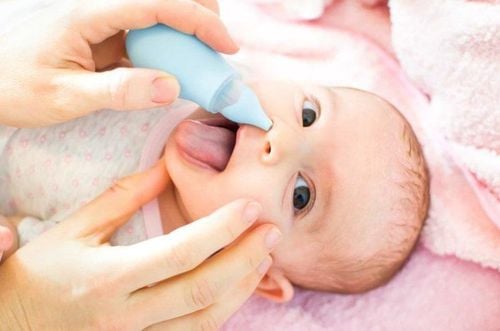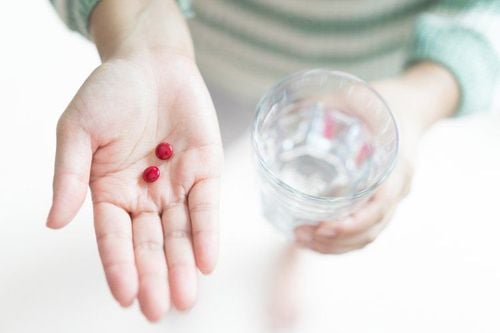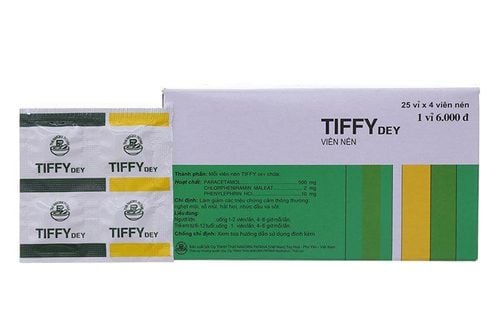Decolgen is a combination medicine that is often used to relieve symptoms of the common cold and allergic rhinitis. The ingredients can differ slightly depending on the form of the product, and how it is used may also vary.
1. What is Decolgen?
Decolgen is a non-prescription medication used to treat certain respiratory symptoms. A typical Decolgen tablet usually contains:
- Paracetamol (Acetaminophen): This is a pain reliever and fever reducer. It can ease common problems like headaches, muscle aches, joint pain, and other discomfort that often come with colds.
- Phenylephrine: This works on α-adrenergic receptors in the nasal lining to reduce swelling. It helps shrink the swollen nasal blood vessels, which can relieve nasal congestion. It may help especially in areas where nasal sprays or drops cannot reach.
- Chlorpheniramine: This is a first-generation antihistamine that helps with allergic symptoms, such as runny nose, sneezing, and watery eyes. It works with phenylephrine to reduce congestion more effectively. By improving nasal airflow, it also helps clear out mucus and reduce the risk of complications like ear infections. However, chlorpheniramine can cause drowsiness. Therefore, one type of Decolgen (called Decolgen ND) is made without chlorpheniramine to avoid the drowsy side effect.
Decolgen comes in three main forms, each with different amounts and ingredients:
- Decolgen Forte (tablets):
Paracetamol 500mg
Phenylephrine HCl 10mg
Chlorpheniramine maleate 2mg - Decolgen ND (No Drowsiness) (tablets):
Paracetamol 500mg
Phenylephrine HCl 10mg - Decolgen Syrup (per 5ml):
Paracetamol 100mg
Phenylephrine HCl 2.5mg
Chlorpheniramine maleate 0.33mg

2. Uses of Decolgen
Decolgen is used to manage symptoms in certain respiratory conditions, such as:
- Common cold: helps relieve headache, runny nose, nasal congestion.
- Allergic rhinitis, vasomotor rhinitis, and runny nose caused by colds.
- Allergic sinusitis.
- Other upper respiratory issues.
Do not use Decolgen if:
- You have a history of allergy to its ingredients.
- You have alcohol addiction, severe liver or kidney problems, or active viral hepatitis.
- For paracetamol: Do not use if you have G6PD deficiency.
- For phenylephrine: Do not use without a doctor’s advice if you have thyroid disease, active asthma, diabetes, high blood pressure, heart conditions, or difficulty urinating due to an enlarged prostate.
3. How to Take Decolgen
Follow your doctor’s instructions. The doses below are for reference only:
Tablets:
- Adults and children over 12: 1−2 tablets per dose, 3−4 times a day. Do not take more than 6 tablets in 24 hours.
- Children 7−12: 1/2−1 tablet per dose, 3−4 times a day. Do not exceed 3 tablets in 24 hours.
- Children 2−6: 1/2 tablet per dose, 3 times a day. Do not exceed 1.5 tablets in 24 hours.
- Not recommended for children under 2 unless prescribed by a doctor.
Syrup:
- Adults: 30ml per dose, 3−4 times a day.
- Children 7−12: 15ml per dose, 3−4 times a day.
- Children 2−6: 5−10ml per dose, 3−4 times a day
- Under 2 years old: Ask a doctor first.
Wait at least 4−6 hours between doses.
4. Side Effects of Decolgen
Paracetamol is generally safe if used correctly, but side effects can include skin rashes, anemia, kidney problems, or rare severe allergic reactions. Overdose can cause serious liver damage.
Phenylephrine can cause restlessness, anxiety, nervousness, weakness, dizziness, chest pain, tremors, breathing difficulties, or blue discoloration of the skin in some cases.
Rare but serious skin reactions such as Steven-Johnson syndrome, Lyell’s syndrome, or toxic skin necrosis can occur.
Some people may feel sleepy (especially with Decolgen Forte and syrup), but this usually gets better after a few days.

5. Precautions When Using Decolgen
- This medicine may cause mild nervous system stimulation or drowsiness. If you feel drowsy, do not drive or operate machinery.
- If you must drive or operate machines, consider using the non-drowsy Decolgen type.
- During pregnancy: Safety is not fully proven, so Decolgen is not recommended for pregnant women.
- During breastfeeding: Decolgen can pass into breast milk, so it is not advised for breastfeeding mothers as infants may be very sensitive to the drug.
- Drinking too much alcohol for a long time can increase liver damage risk from paracetamol. Watch for signs like loss of appetite or yellowing of the skin.
- Taking chlorpheniramine with alcohol or sedative drugs can increase drowsiness.
- Stop using Decolgen and seek medical help if you have fast heartbeat, palpitations, difficulty breathing, skin rash, yellow skin, or unusual fatigue.
Decolgen for colds is common and can be bought without a prescription. However, do not use these symptom-relief medications for too long to avoid possible harm.
Please dial HOTLINE for more information or register for an appointment HERE. Download MyVinmec app to make appointments faster and to manage your bookings easily.













